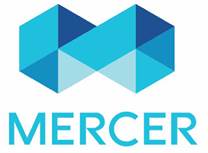Mercer KiwiSaver Scheme Review
Updated 8 February 2021
Summary of Mercer KiwiSaver
Our Review
In this guide, we outline what the Mercer KiwiSaver scheme is, what funds they offer to KiwiSaver members and how they're different to other funds, as well as looking at alternatives and the level of fees involved.
Please note: MoneyHub is not a Financial Adviser, and this guide has been published to explain the investment fundamentals and outline the pros and cons of Mercer as a KiwiSaver investment option.
This Guide covers:
Read this First: Fees, Performance and Understanding What's Best For Your Situation
A lot of media attention focuses on KiwiSaver fees, but this is only one thing to consider when picking the most suitable provider and fund for your retirement needs. Mercer would likely argue fees should be far less of a consideration and instead point to the past returns (although this is no indication of future performance) and the value for money the fees offer given the services of leading international investment managers.
We believe that being comfortable with what you're investing in is the most important aspect of saving for your retirement, not the fee you'll pay. For example, if you are not willing to risk your money in the sharemarket, it wouldn't be in your interests to invest in a growth fund.
- Mercer offers seven KiwiSaver funds, presenting investors with a spectrum of risk, from cash-investing funds to aggressive growth options.
- Management fees are higher than other, more traditional, KiwiSaver schemes due to Mercer running actively-managed funds. Added costs include brokerage when trading shares, the fees of any third party hedge fund managers, and the costs of the analysts and fund managers (i.e. overhead) that work for Mercer.
- The scheme publishes very clear fund updates every three months - see an example for the Balanced Fund as at 30 June 2018. The fund performance vs market performance graphic is particularly informative, as is the list of the top ten investments each fund holds.
- Our KiwiSaver returns comparison tool (which uses data from Morningstar) indicates that Mercer funds perform below-average compared to other conservative, balanced and growth funds.
- There are three types of fees:
- $2.25 per month is charged for being a member of the Mercer scheme, but if you are under 18 or have a balance of under $1,000 this is not charged, and
- Management fees - 0.37% to 0.96%, depending on the fund invested in, and
- Performance fees, which are included within the management fee estimates (above). The performance fees can be applied to the Cash, Conservative, Moderate, Balanced, Growth and High Growth funds. Performance fees arise because external managers (i.e. investment banks, wealth managers and hedge funds) apply their own performance fees to the funds Mercer invests in. The fees range from 0.02% to 0.07% p.a - as an example, a KiwiSaver fund with a balance of $10,000 would be charged $2 to $7 if a performance fee is charged. Mercer itself does not take a direct performance fee.
- Switching between any Mercer KiwiSaver fund is free. There are no joining fees or exit fees if you take your money to another fund.
Our Review
In this guide, we outline what the Mercer KiwiSaver scheme is, what funds they offer to KiwiSaver members and how they're different to other funds, as well as looking at alternatives and the level of fees involved.
Please note: MoneyHub is not a Financial Adviser, and this guide has been published to explain the investment fundamentals and outline the pros and cons of Mercer as a KiwiSaver investment option.
This Guide covers:
- Pros and Cons of Mercer KiwiSaver
- The Specs of Mercer KiwiSaver, Fees and Where Your Money Is Invested
- Mercer KiwiSaver in the Media - What You Need To Know
- Who is Mercer KiwiSaver Suited to?
- 7 Things To Know About Mercer KiwiSaver
- Conclusion
Read this First: Fees, Performance and Understanding What's Best For Your Situation
A lot of media attention focuses on KiwiSaver fees, but this is only one thing to consider when picking the most suitable provider and fund for your retirement needs. Mercer would likely argue fees should be far less of a consideration and instead point to the past returns (although this is no indication of future performance) and the value for money the fees offer given the services of leading international investment managers.
We believe that being comfortable with what you're investing in is the most important aspect of saving for your retirement, not the fee you'll pay. For example, if you are not willing to risk your money in the sharemarket, it wouldn't be in your interests to invest in a growth fund.
Pros & Cons of Mercer KiwiSaver
PROS
CONS
- Seven clearly-defined funds that offer a sliding scale of risk and return
- A trusted KiwiSaver provider which has won multiple awards within the industry
- Market-leading returns reported by the Active Growth fund
- Investors get an actively managed fund, aimed at beating market returns year after year
CONS
- Higher-than-standard management fees - this is due to the costs associated with running actively managed funds and the external fund manager performance fees.
- There is no age-based investment option, meaning there is only a choice of seven funds (or a mix of all of them) but no option to gradually move money into more conservative investments as members get older.
The Specs of Mercer KiwiSaver - fees, returns and where your money is invested
- Mercer (N.Z.) Ltd, a fund manager, is the manager of the seven Mercer KiwiSaver funds.
- Up-to-date fund performance data is available every three months for each fund on the Mercer Financial Services website, listed under the 'Mercer KiwiSaver scheme' heading.
- Mercer operates seven KiwiSaver funds, and invests KiwiSaver money in two asset classes:
- Defensive assets — refers to lower risk investments such as cash and fixed interest securities
- Growth assets — refers to higher risk investments such as Australasian and International equities (shares) and property.
- Each of the seven funds has a unique risk factor (1 = lowest, 7 = highest) and an annual management fee, as well as distinct investment profiles.
Mercer KiwiSaver Scheme - Outlining the Cash, Conservative, Moderate, Balanced, Growth, High Growth and Shares Funds
1: Mercer Cash Fund
This fund invests 100% of its money into defensive assets, specifically on-call cash deposits and term deposits; this is a fund for anyone who does not want any investment in growth assets.
Investment Composition targets:
Defensive Assets
We say: The Mercer Cash Fund is as risk-free as KiwiSaver funds come, and is similar to leaving money in the bank to earn standard interest rates. All investments are made in New Zealand dollars and 99% of the assets were invested in the AMP Capital Investors NZ Cash fund as per the most recent fund update. This fund, run by AMP Capital, invests in bank deposits - its top 3 assets were a Call Account at Westpac (30%), an ANZ call account (14%) and a Rabobank Advance deposit (7%). Mercer invests almost all of the money with AMP because it's more efficient to do so, although the fees AMP charges Mercer are on-charged to each investor.
The annual management fee of 0.37% is in line with most cash and conservative funds operated by other KiwiSaver schemes.
This fund invests 100% of its money into defensive assets, specifically on-call cash deposits and term deposits; this is a fund for anyone who does not want any investment in growth assets.
- Annual management fee: 0.37%
- Risk factor: 1
- Expected annual return: TBC
- Suggested minimum investment period: None
Investment Composition targets:
Defensive Assets
- Cash: 100%
We say: The Mercer Cash Fund is as risk-free as KiwiSaver funds come, and is similar to leaving money in the bank to earn standard interest rates. All investments are made in New Zealand dollars and 99% of the assets were invested in the AMP Capital Investors NZ Cash fund as per the most recent fund update. This fund, run by AMP Capital, invests in bank deposits - its top 3 assets were a Call Account at Westpac (30%), an ANZ call account (14%) and a Rabobank Advance deposit (7%). Mercer invests almost all of the money with AMP because it's more efficient to do so, although the fees AMP charges Mercer are on-charged to each investor.
The annual management fee of 0.37% is in line with most cash and conservative funds operated by other KiwiSaver schemes.
2: Mercer Conservative Fund
This fund invests 80% of its money into defensive assets, with a large portion allocated to cash (on-call cash deposits and term deposits) and international fixed interest, such as government and corporate bonds. The fund is far less cautious than the Mercer Cash fund and is most likely to be suitable to anyone comfortable with 20% of their money allocated to markets that can go up and down every day.
Investment Composition targets:
Defensive (80%)
We say: The Mercer Conservative Fund invests in other funds that specialise in assets specified within the fund's allocation targets. For example, in a recent fund update, 35% of all assets were invested in the AMP Capital Investors NZ Cash fund which invests in cash deposits with New Zealand banks. Other major holdings included 14% in the ANZ Wholesale Sovereign Bond Fund, and a number of bond holdings with the US Treasury, Government of Victoria and specific bond funds. The 0.58% annual fee, in line with many conservative funds, is higher than the Mercer Cash Fund as it reflects the costs associated with the greater number of investments held by the fund.
This fund invests 80% of its money into defensive assets, with a large portion allocated to cash (on-call cash deposits and term deposits) and international fixed interest, such as government and corporate bonds. The fund is far less cautious than the Mercer Cash fund and is most likely to be suitable to anyone comfortable with 20% of their money allocated to markets that can go up and down every day.
- Annual management fee: 0.58%
- Risk factor: 2
- Expected annual return: TBC
- Suggested minimum investment period: 3 years
Investment Composition targets:
Defensive (80%)
- Cash: 30%
- NZ Fixed Interest: 15%
- International Fixed Interest: 35%
- Australasian equities: 5%
- International equities: 11%
- Listed property: 0.88%
- Unlisted property: 0.87%
- Commodities: 0.50%
- Other: 1.75%
We say: The Mercer Conservative Fund invests in other funds that specialise in assets specified within the fund's allocation targets. For example, in a recent fund update, 35% of all assets were invested in the AMP Capital Investors NZ Cash fund which invests in cash deposits with New Zealand banks. Other major holdings included 14% in the ANZ Wholesale Sovereign Bond Fund, and a number of bond holdings with the US Treasury, Government of Victoria and specific bond funds. The 0.58% annual fee, in line with many conservative funds, is higher than the Mercer Cash Fund as it reflects the costs associated with the greater number of investments held by the fund.
3: Mercer Moderate Fund
This fund invests 65% of its money into defensive assets, with a large portion allocated to cash (on-call cash deposits and term deposits) and international fixed interest products such as overseas government bonds. Less cautious than the Mercer Conservative fund, this is a fund for anyone comfortably with 35% of their money being invested in markets that can go up and down every day.
Investment Composition targets:
Defensive (65%)
We say: The Mercer Moderate Fund invests a third of its money in growth assets, primarily shares, and two thirds in relatively safe cash and fixed interest. The major investments closely mirror the Mercer Conservative Fund (above), with the difference being a slightly higher weight in growth assets (35% vs 20%) and a marginally higher annual fee (0.69% vs 0.58%). The 0.69% annual fee is in keeping with standard 'moderate' funds, reflecting the costs associated with the greater number of investments held by the fund.
This is a fund for anyone wanting some asset growth with minimal risk. As only one-third of investments go into New Zealand and global sharemarkets and properties, knowing the majority of money sits in (relatively) safe investments earning interest.
This fund invests 65% of its money into defensive assets, with a large portion allocated to cash (on-call cash deposits and term deposits) and international fixed interest products such as overseas government bonds. Less cautious than the Mercer Conservative fund, this is a fund for anyone comfortably with 35% of their money being invested in markets that can go up and down every day.
- Annual management fee: 0.69%
- Risk factor: 3
- Expected annual return: TBC
- Suggested minimum investment period: 5 years
Investment Composition targets:
Defensive (65%)
- Cash: 24%
- NZ Fixed Interest: 13%
- International Fixed Interest: 28%
- Australasian equities: 7%
- International equities: 16%
- Listed property: 2%
- Unlisted property: 2%
- Commodities: 1%
- Other: 7%
We say: The Mercer Moderate Fund invests a third of its money in growth assets, primarily shares, and two thirds in relatively safe cash and fixed interest. The major investments closely mirror the Mercer Conservative Fund (above), with the difference being a slightly higher weight in growth assets (35% vs 20%) and a marginally higher annual fee (0.69% vs 0.58%). The 0.69% annual fee is in keeping with standard 'moderate' funds, reflecting the costs associated with the greater number of investments held by the fund.
This is a fund for anyone wanting some asset growth with minimal risk. As only one-third of investments go into New Zealand and global sharemarkets and properties, knowing the majority of money sits in (relatively) safe investments earning interest.
4: Mercer Balanced Fund
A balanced fund, by definition, usually invests 50% of its money into defensive assets, the 50% into growth assets. The Mercer Balanced Fund weights growth assets at 55% and defensive assets at 45%, offering an investment option for anyone looking for diversity in their fund.
Investment Composition targets:
Defensive (45%)
We say: The Mercer Balanced Fund invests in a number of other funds that specialise in assets specified within the fund's allocation targets. For example, in a recent fund update, 15% of all assets were invested in the AMP Capital Investors NZ Cash fund which invests in cash deposits with New Zealand banks. Other major holdings included 9% in the ANZ Wholesale Sovereign Bond Fund, which is in line with the NZ fixed interest target. Other investments include a number of managed funds run by institutions in Australia and specialising in fixed interest, property and infrastructure.
A balanced fund, by definition, usually invests 50% of its money into defensive assets, the 50% into growth assets. The Mercer Balanced Fund weights growth assets at 55% and defensive assets at 45%, offering an investment option for anyone looking for diversity in their fund.
- Annual management fee: 0.81%
- Risk factor: 1
- Expected annual return: TBC
- Suggested minimum investment period: 7 years
Investment Composition targets:
Defensive (45%)
- Cash: 10%
- NZ Fixed Interest: 10%
- International Fixed Interest: 25%
- Australasian equities: 10%
- International equities: 28.50%
- Listed property: 3%
- Unlisted property: 3%
- Commodities: 1.50%
- Other: 9%
We say: The Mercer Balanced Fund invests in a number of other funds that specialise in assets specified within the fund's allocation targets. For example, in a recent fund update, 15% of all assets were invested in the AMP Capital Investors NZ Cash fund which invests in cash deposits with New Zealand banks. Other major holdings included 9% in the ANZ Wholesale Sovereign Bond Fund, which is in line with the NZ fixed interest target. Other investments include a number of managed funds run by institutions in Australia and specialising in fixed interest, property and infrastructure.
5: Mercer Conservative Fund
This fund invests 80% of its money into defensive assets, with a large portion allocated to cash (on-call cash deposits and term deposits) and international fixed interest. Less cautious than the Mercer Cash fund, this is a fund for anyone comfortably with 20% of their money being invested in markets that can go up and down every day.
Investment Composition targets:
Defensive (25%)
We say: The Mercer Growth Fund puts the bulk of its money in equities, meaning the performance of global sharemarkets underpins how the fund will perform. In a recent fund update, a2 Milk was the largest-held New Zealand share (1%). Due to the limit of only the top 10 assets being disclosed, it's unclear as to what other non-cash or fixed interest investments make up the fund. The 0.91% annual fee is in keeping with growth funds offered by banks and specialist fund managers. With 75% of the assets allocated to growth assets, higher costs are incurred such as brokerage for the buying and selling of parcels of shares. Furthermore, any specialist funds Mercer invests in will have its own fees which Mercer has to cover.
This fund invests 80% of its money into defensive assets, with a large portion allocated to cash (on-call cash deposits and term deposits) and international fixed interest. Less cautious than the Mercer Cash fund, this is a fund for anyone comfortably with 20% of their money being invested in markets that can go up and down every day.
- Annual management fee: 0.91%
- Risk factor: 3
- Expected annual return: TBC
- Suggested minimum investment period: 8 years
Investment Composition targets:
Defensive (25%)
- Cash: 4%
- NZ Fixed Interest: 5%
- International Fixed Interest: 16%
- Australasian equities: 12%
- International equities: 44%
- Listed property: 3.50%
- Unlisted property: 3.50%
- Commodities: 2%
- Other: 10%
We say: The Mercer Growth Fund puts the bulk of its money in equities, meaning the performance of global sharemarkets underpins how the fund will perform. In a recent fund update, a2 Milk was the largest-held New Zealand share (1%). Due to the limit of only the top 10 assets being disclosed, it's unclear as to what other non-cash or fixed interest investments make up the fund. The 0.91% annual fee is in keeping with growth funds offered by banks and specialist fund managers. With 75% of the assets allocated to growth assets, higher costs are incurred such as brokerage for the buying and selling of parcels of shares. Furthermore, any specialist funds Mercer invests in will have its own fees which Mercer has to cover.
6: Mercer High Growth Fund
This fund invests 10% of its money into defensive assets, with 90% allocated to shares, property, commodities and infrastructure assets. This fund gives considerable exposure to global markets while retaining a small portion of assets in safer cash-based investments. With 90% of the money being invested in global markets, the performance and ultimate value of the Mercer High Growth Fund will be up and down on a daily basis.
Investment Composition targets:
Defensive (10%)
We say: The Mercer High Growth Fund offers a high-risk option that invests predominantly in listed New Zealand companies. In a recent fund update, holdings included shares in a2 Milk (1.50%), Contact Energy (1%) and Spark (1%) as well as a number of bonds and overseas funds. The fund is the 'final frontier' before the ultra-aggressive Shares Fund (outlined below), so investors will need to have complete trust in the Mercer team and their abilities to properly understand the risks of this KiwiSaver option.
This fund invests 10% of its money into defensive assets, with 90% allocated to shares, property, commodities and infrastructure assets. This fund gives considerable exposure to global markets while retaining a small portion of assets in safer cash-based investments. With 90% of the money being invested in global markets, the performance and ultimate value of the Mercer High Growth Fund will be up and down on a daily basis.
- Annual management fee: 0.96%
- Risk factor: 4
- Expected annual return: TBC
- Suggested minimum investment period: 10 years
Investment Composition targets:
Defensive (10%)
- Cash: 2%
- NZ Fixed Interest: 2%
- International Fixed Interest: 6%
- Australasian equities: 18%
- International equities: 53%
- Listed property: 3.50%
- Unlisted property: 3.50%
- Commodities: 2%
- Other: 10%
We say: The Mercer High Growth Fund offers a high-risk option that invests predominantly in listed New Zealand companies. In a recent fund update, holdings included shares in a2 Milk (1.50%), Contact Energy (1%) and Spark (1%) as well as a number of bonds and overseas funds. The fund is the 'final frontier' before the ultra-aggressive Shares Fund (outlined below), so investors will need to have complete trust in the Mercer team and their abilities to properly understand the risks of this KiwiSaver option.
7: Mercer Shares Fund
This fund invests 100% of its money into shares, making it the highest-risk KiwiSaver fund offered by Mercer. The fund aims to out-perform the NZX and global sharemarkets in the long run by investing in undervalued shares that have the potential to deliver market-beating returns.
Investment Composition targets:
Defensive (0%), Growth (100%)
We say: The Mercer Shares Fund is an 'all in' investment option that is high-risk and probably most suitable for those wanting to grow their KiwiSaver balance at a young age. In a recent fund update, holdings outside of NZD and USD bank accounts include shares in the following New Zealand listed companies:
At the core of the Mercer Shares Fund is a team of investment managers and analysts looking for opportunities around the world, and for this reason, complete trust is needed in their ability. Mercer, unlike offerings from SuperLife or Simplicity, does not follow an index such as the S&P500 or NZX50. This means the performance of individual share picks by the Mercer team underpins how the fund performs. If any of the shares listed above drop in value, there will be a direct effect on the value of the fund. However, the fund is diversified not only in shareholdings but also in hedge funds managed by experts overseas. The 0.96% annual fee is in keeping with other growth funds offered by Mercer competitors.
This fund invests 100% of its money into shares, making it the highest-risk KiwiSaver fund offered by Mercer. The fund aims to out-perform the NZX and global sharemarkets in the long run by investing in undervalued shares that have the potential to deliver market-beating returns.
- Annual management fee: 0.96%
- Risk factor: 4
- Expected annual return: TBC
- Suggested minimum investment period: 10 years
Investment Composition targets:
Defensive (0%), Growth (100%)
- Australasian equities: 26%
- International equities: 74%
We say: The Mercer Shares Fund is an 'all in' investment option that is high-risk and probably most suitable for those wanting to grow their KiwiSaver balance at a young age. In a recent fund update, holdings outside of NZD and USD bank accounts include shares in the following New Zealand listed companies:
- a2 Milk (2%)
- Contact Energy (1.50%)
- Spark (1.50%)
- Fisher & Paykel (1.50%)
- Fletcher Building (1.50%)
- Meridian Energy (1%)
- Auckland Airport (1%)
- MetlifeCare (1%)
At the core of the Mercer Shares Fund is a team of investment managers and analysts looking for opportunities around the world, and for this reason, complete trust is needed in their ability. Mercer, unlike offerings from SuperLife or Simplicity, does not follow an index such as the S&P500 or NZX50. This means the performance of individual share picks by the Mercer team underpins how the fund performs. If any of the shares listed above drop in value, there will be a direct effect on the value of the fund. However, the fund is diversified not only in shareholdings but also in hedge funds managed by experts overseas. The 0.96% annual fee is in keeping with other growth funds offered by Mercer competitors.
Mercer KiwiSaver - Media Reports and What You Need to Know
What Others Are Saying - Mercer KiwiSaver in the Media
"Different providers focus on different things when it comes to responsible investing. An investor who has an interest in issues related to renewable energy and sustainable water might prefer Mercer".
- Diana Clement, NZ Herald, August 2018
"Among the Default fund managers, Mercer has extended its lead over the others, even those that are close to its performance. Mercer have held this advantage for some time and it will be reassuring for its members that its relative performance is improving".
- David Chason, interest.co.nz, February 2018
"Mercer remains the best Default fund based on our regular savings return calculations".
- David Chaston, Interest.co.nz, November 2017
Mercer chief executive Martin Lewington says Mercer charges higher fees than, for example, a passive fund because its investment portfolio is a lot wider and (Mercer has) a high weighting to alternatives, things that aren’t shares or bonds, such as property, infrastructure, private equity and some hedge fund strategies. These sorts of assets are generally more expensive (and) reduce volatility, hence the higher fees. Customers pay more in terms of fees but receive better returns as a result".
- Jason Walls, interest.co.nz, February 2018
"Different providers focus on different things when it comes to responsible investing. An investor who has an interest in issues related to renewable energy and sustainable water might prefer Mercer".
- Diana Clement, NZ Herald, August 2018
"Among the Default fund managers, Mercer has extended its lead over the others, even those that are close to its performance. Mercer have held this advantage for some time and it will be reassuring for its members that its relative performance is improving".
- David Chason, interest.co.nz, February 2018
"Mercer remains the best Default fund based on our regular savings return calculations".
- David Chaston, Interest.co.nz, November 2017
Mercer chief executive Martin Lewington says Mercer charges higher fees than, for example, a passive fund because its investment portfolio is a lot wider and (Mercer has) a high weighting to alternatives, things that aren’t shares or bonds, such as property, infrastructure, private equity and some hedge fund strategies. These sorts of assets are generally more expensive (and) reduce volatility, hence the higher fees. Customers pay more in terms of fees but receive better returns as a result".
- Jason Walls, interest.co.nz, February 2018
Who is Mercer KiwiSaver Suited To?
Mercer is a large KiwiSaver scheme and has around $1.7 billion under management, with its Conservative fund: ($1 billion), Balanced fund ($350 million) and High growth fund ($157m) being the three most popular funds.
Standout Features:
Be aware:
Standout Features:
- Seven core funds, each clear in their investment strategy.
- The ability to spread contributions among the seven funds, for example you can invest 75% in the Growth Fund and 25% in the Balanced Fund.
- It's free to change funds; the monthly membership fee means you can move between funds as often as you like.
Be aware:
- The more aggressive funds and are not suitable for short-term investments.
- There is no age-based investment option, meaning there is only a choice of seven funds and no option to gradually move money into more conservative investments as members get older.
- Fees are slightly higher than standard bank and index-following KiwiSaver schemes - this is due to the costs associated with an actively managed fund, such as the cost of brokerage when an investment manager buys and sells investments.
- As with any investment, markets go up and down. The Dotcom bubble in the early 2000s sank global sharemarkets, as did the 2008 Global Financial Crisis.
- While many global sharemarkets are now at record highs, this is no guarantee of future earnings.
The Bottom Line
- Mercer is transparent in its investment strategy, and its investment approach is both responsible and environmentally-leaning, and the investment managers avoid investing in exotic asset classes; your money will not buy shares in anything that creates negative social or environmental effects or be risky in nature.
- The Mercer fees are higher than bank KiwiSaver schemes, and once you are in the growth-orientated funds, you're likely to be in it for the long-term.
- Depending on your KiwiSaver balance, other funds on other platforms can have cheaper management fees, but these are unlikely to be actively managed. We have presented a comparison in the table below.
- For example, the fee difference between the Simplicity Growth Fund (0.31%) and Mercer Growth Fund (0.91%) for a $40,000 balance is $230 a year, or ~$6,000 over 25 years. In saying this, these two funds incomparable given Simplicity uses index fund investing, and Mercer is actively managed. The difference in the fund value based on long-term overall performance could be far more than $8,000. In any case, it is essential to shop around and compare fund objectives as well as fund fees if you're serious about having the biggest KiwiSaver nest-egg possible.
- As an illustrative point, we have presented the annual performance of six growth funds below, as well as a table of their annual fees.
- Mercer KiwiSaver does not charge any joining fees or exit fees, and you can transfer between funds for free as many times as you want.
- Regarding risk, each fund has a risk number (1 = lowest, 7 = highest), and in the case of Mercer, the funds have been assessed between 1 to 4.
Fund Fee Comparison: How the Mercer Growth Fund compares alongside other
KiwiSaver Growth Funds
(KiwiSaver balances between $5,000 and $500,000)
KiwiSaver Growth Funds
(KiwiSaver balances between $5,000 and $500,000)
Balance |
Mercer Growth Fund (0.91%) |
Simplicity Growth Fund (0.31%) |
ANZ Growth Fund (1.10%) |
Fisher Funds Growth Fund (1.11%) |
Generate Growth Fund (1.57%) |
$5,000 |
$76 |
$36 |
$79 |
$92 |
$115 |
$15,000 |
$167 |
$67 |
$189 |
$203 |
$272 |
$40,000 |
$394 |
$144 |
$464 |
$480 |
$664 |
$100,000 |
$940 |
$330 |
$1,124 |
$1,146 |
$1,606 |
$500,000 |
$4,580 |
$1,570 |
$5,524 |
$5,586 |
$7,886 |
Mercer Active Growth Annual Fee: 0.91% of total investment plus a $30 membership fee (includes performance fees)
Fisher Funds Growth Fund Annual Fee: 1.11% of total investment plus a $36 membership fee (excludes performance fees)
Simplicity Growth Fund Annual Fee: 0.31% of total investment plus a $32 membership fee
ANZ Growth Fund Annual Fee: 1.10% of total investment plus a $24 membership fee
Generate Growth Fund Annual Fee: 1.57% of total investment plus a $36 membership fee (excludes performance fees)
Fisher Funds Growth Fund Annual Fee: 1.11% of total investment plus a $36 membership fee (excludes performance fees)
Simplicity Growth Fund Annual Fee: 0.31% of total investment plus a $32 membership fee
ANZ Growth Fund Annual Fee: 1.10% of total investment plus a $24 membership fee
Generate Growth Fund Annual Fee: 1.57% of total investment plus a $36 membership fee (excludes performance fees)
7 Must-Know Mercer KiwiSaver Scheme Facts
Mercer is a default KiwiSaver providerThe New Zealand government has approved Mercer as a default provider per the Financial Markets Authority. This means any new KiwiSaver member can be assigned Mercer as their KiwiSaver provider. If this is you and you want to switch to another Mercer fund or scheme altogether, you are free to do this free-of-charge.
|
No matter what your employer's default KiwiSaver provider or fund is, you are entitled to select any Mercer KiwiSaver fundAs a KiwiSaver member, you have the right to pick any one of the 20+ providers and the fund you want. If you feel a Mercer KiwiSaver fund is right for you, then you can either join (if you're new to KiwiSaver) or transfer the balance of an existing KiwiSaver fund to Mercer.
|
There is no minimum investment, and it's easy to take contribution holidaysAs a Mercer KiwiSaver member, you'll pay a $2.25 monthly membership fee. This membership fee gives you the freedom to invest as you like. And if you want to contribute to your fund at a level above your fixed salary contribution, you can do this by contacting the client services team. If you are under 18 or have a balance of under $1,000 this fee is not charged.
|
Dividends your fund receives are reinvested, meaning more cash is invested on your behalfSix out of seven Mercer KiwiSaver funds invest in shares, and many will pay dividends. These cash payments represent the profits from companies returning it to the shareholders, i.e. you. When a company declares a dividend, your fund will receive money, and it is re-invested into more shares, growing the value of your fund. Despite being a cash payment, and as is the case with ALL KiwiSaver funds, there is no option to take this money as cash until you turn 65.
|
Mercer practices'responsible investing'Since 2017, Mercer has a 'responsible investing' policy' which is summarised by the provider to make it clear that "Mercer excludes companies manufacturing tobacco, in addition to the existing exclusions for controversial weapons (cluster munitions, landmines, chemical and biological weapons, and nuclear weapons). This applies across all asset types, with the list of companies determined in conjunction with an external provider".
This means that there may be lower returns than funds managed by, for example, Generate KiwiSaver (which doesn't have a responsibility investing policy) in certain situations. In a situation where shares in nuclear weapons, tobacco and coal become popular and increase in price, Mercer would not be able to invest in such assets. The purpose of such a policy is to be accountable to investors and make them comfortable with where their money ends up. |
Signing up to Mercer KiwiSaver isn't complicated, but you’ll need to decide what fund to invest in firstSigning up to the Mercer KiwiSaver scheme is fast and easy, but before you go ahead, you’ll need to decide your fund first.
Generally, if you're looking for a safe investment with the lowest risk of seeing your original investment fall, a conservative fund could be a suitable option. If you're looking for a higher return and are prepared to have your money in higher risk investments which could fall in value, a growth fund operates in this manner. If you're not sure of what to invest in and want to have a range of options to pick from, look at Sorted's FundFinder tool which includes the Mercer KiwiSaver funds. |
Mercer invests in the New Zealand sharemarketEvery fund has a target to invest in 'Australasian equities', and recent fund updates highlight that many of the top ten assets held by growth-focused Mercer funds were listed New Zealand companies. Investments included Spark, Auckland Airport and a2 Milk.
Mercer actively manages its investments and does not need to invest according to its targeted portfolio ratios (i.e. cash 10%, Australasian equities 45%, 45% international equities etc) if it sees specific opportunities. For example, if global sharemarkets are dropping significantly, the fund managers can sell equity investments and put the money into cash accounts with a bank, rather than re-invest it in the sharemarket. In essence, the allocation targets are not fixed; if a fund states its Australasian equities allocation target is 40%, it can still invest anywhere from 0% to 100% - the investment manager has ultimate control. |
Related guides and resources














